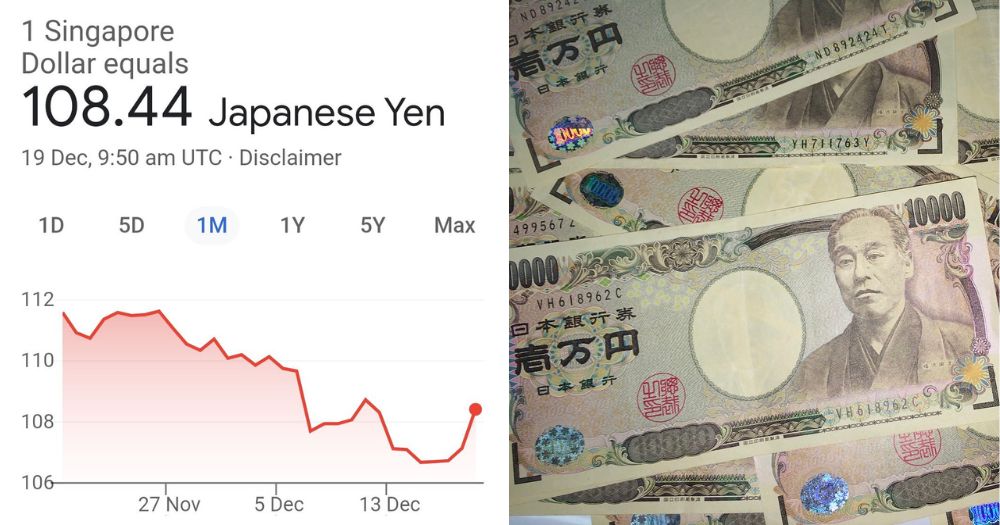The Japanese yen slid to 108.4 yen against the Singapore dollar as of 5:50pm on Dec. 19.
This comes after the Bank of Japan (BOJ) announced its decision earlier in the day to maintain negative interest rates, according to the Financial Times (FT).
Looking at the bigger picture
From Dec. 18 to 19, the BOJ kept overnight interest rates at negative 0.1 per cent, FT reported.
“The BOJ will continue to maintain the stability of financing, mainly of firms, and financial markets, and will not hesitate to take additional easing measures if necessary,” BOJ said in a statement on Dec. 19, after its two-day monetary policy meeting.
The bank has been maintaining negative interest rates to try and boost the country’s inflation rate to 2 per cent.
However, the yen has appeared to slowly strengthen against the Singapore dollar since Nov. 14, when the currency reached a historic low at 112 yen against S$1.
For example, the yen strengthened to 107.91 against the Singapore dollar as of 7pm on Dec. 8, according to The Straits Times.
To maintain or not to maintain the status quo
On Oct. 31, the yen fell after the BOJ announced that it would change its policy to allow 10-year government bond yields to rise above the ceiling of 1 per cent.
The widening interest rate gap between the U.S. and Japan is another major factor driving the yen's weakness, Nikkei Asia reported.
As of Dec. 19, the Japanese currency slid more than 0.6 per cent against the U.S. dollar to 144.27 yen after the BOJ’s decision, according to Reuters.
It is yet to be determined whether BOJ governor Kazuo Ueda would continue or end the bank’s negative interest rate policy in its subsequent meeting next year from Jan. 22 to 23, a Japanese economist told Nikkei Asia.
Top image from Pixabay and Google.
Related stories

If you like what you read, follow us on Facebook, Instagram, Twitter and Telegram to get the latest updates.



